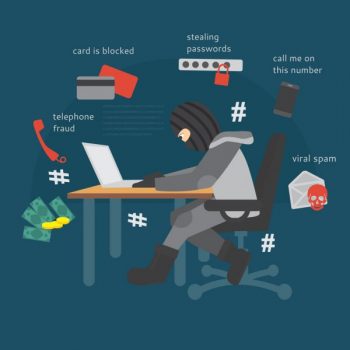Whilst online security methods are always improving, the threats many of us face will also be changing frequently. Thus, it should be noted that Online Scams might continue to rise this year after the Coronavirus Pandemic created greater opportunity for online fraud. Here are our latest tips for strengthening your personal security from cyber threats.
What Online Scams should you look out for?
Many online scams will continue to be topical. Coronavirus-related scams, such as fake ads or phishing emails advertising job opportunities or vaccine eligibility, will be just as significant of a threat as they were in 2020. This could lead to many more victims of Authorised Push Payment (APP) scams or transaction fraud if you don’t consider safety precautions. Indeed, being aware of what see and read concerning COVID-19 might be crucial to your cyber security this year.
In addition, other types of online scam threats that you should know about this year include:
Synthetic Identity Fraud – When a mix of real information and invented details are used to carry out transactions illegally.
Account Threats – Online identity theft; criminals can either take over an account or create a new one with the same details.
Tips for improving your Online Security
The Basics
Tried-and-tested cyber security protocols are always a good place to start. Ensure that you have Two-Factor Authentication to give you an additional layer of security against attacks on your accounts. Moreover, make sure that you update your computer when it’s available, back-up your data, and install Anti-Virus Software. Simply being more aware of where and what you’re clicking on when browsing the web can also help you to act more safely; remember that you never get too basic with how to approach online security!
Detecting and avoiding Online Scams
When it comes to online scams specifically it’s good to ensure that your accounts all have differing yet equally strong passwords to further limit the threat of takeovers. You should also check your financial information fairly frequently so that you can be on top of any irregularities as soon as they may emerge. Lastly, check website addresses, as many fraudulent sites might look similar to others but contain small URL differences, and use a safe browsing tool or check reviews for a site you haven’t heard of before.
You can read more about the latest Online Security News Here.









